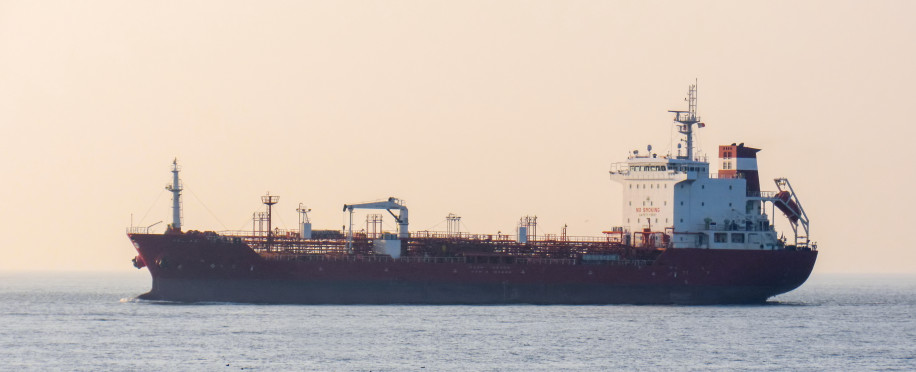Copyright © 2025 lmitac.com All Rights Reserved. Contact - Terms and Conditions - Privacy Policy - Quality Policy - Become an instructor - Vacancies - Sitemap
London Maritime Academy is a trade name for London Premier Groupversion: 2.9.0
London Maritime Academy is a trade name for London Premier Group

Posted on : 5/24/2024, 8:35:10 PM
Last Update : 5/24/2024, 8:35:10 PM
The maritime shipping industry is the core shipping and transportation service on the global level, especially with the ability of modern bulk carriers to transform and carry quantities of unpackaged materials and goods.
This means that dry bulk cargo carriers are a core component of the maritime shipping industry and the international supply chain with all its efficiency and capability.
In this article, we are going to cover wonderful information about bulk carriers, why these designed ships are highly important in the maritime industry, and more details about developed dry bulk shipping.
Bulk carriers, dry bulk carriers, or unpackaged bulk carriers are a type of commercial ships that are designed to transport unpackaged bulk cargo in large quantities through the ocean. Furthermore, bulk carriers play a vital role in global trade with their transportation of raw materials and cargo among ports and regions.
Usually, these vessels are known for their large cargo hold capacity, unique equipment for efficient loading and unloading services of bulk cargo, well-trained crew, and cost-effective transportation fleet. Moreover, bulk carriers are categorised into various groups depending on the size, design, and cargo type.
The quality operations of dry bulk carriers directly impact the shipping KPI of the maritime company, thus, each bulk carrier must follow the national and international regulations and safety standards to ensure the secure transportation of goods and the protection of the marine environment.
Bulk carriers, or bulkers, are designed merchant ships specially to transport unpackaged bulk in large quantities across oceans and waterways.
These ships or vessels are highly important in the shipping industry due to their ability to efficiently hold and transport bulk cargo that is required for leading companies in industrial production, agriculture, and construction.
However, to be more specific we can share with you a list of cargo that could be shipped in a bulk carrier, or bulker, that is designed to carry and transport cargo, including:
Grains (wheat, corn, barley, rice, and soybeans).
Ores (iron ore, bauxite, steel, nickel ore, and copper concentrate).
Coal (thermal coal and metallurgical coal).
Cement.
Fertilisers (urea, ammonium nitrate, and phosphate fertilisers).
Other bulk commodities (sugar, salt, cement clinker, gypsum and limestone).

Shipping management courses teach you how to manage the dry cargo shipping process effectively, and that for sure includes choosing the best-built ship or carrier for each fleet or material.
Bulk carriers’ family is divided into many types, including size types, which are designed with varying capacities and capabilities to meet global trade needs, and adjusted for definite trade routes, cargo types, and measured port facilities.
Moreover, choosing among bulk carriers relies on different factors including the bulk carrier size:
Typically, these called small-size vessels are used for short distances in local coastal areas or inland waterways with a maximum capacity of up to 10,000 deadweight tons (DWT).
These ships are regional and coastal transport, and are slightly larger than mini bulk carriers, with an increased capacity ranging from 10,000 to 25,000 DWT.
Handy-size carrier is a ship that can navigate through many regional and international ports and waterways with a capacity ranging from 25,000 to 40,000 DWT.
These vessels are larger than handy-size carriers and are designed to access a wider range of ports and hold a significant amount of commodity, with a capacity ranging from 40,000 to 60,000 DWT.
Named after the Panama Canal, these ships are sized to fit the dimensions of the original canal and are commonly used for international trade between the Atlantic and Pacific oceans, with typical capacities ranging from 60,000 to 80,000 DWT.
These ships are larger than Panamax carriers, must arrive and operate at leading ports with large and advanced infrastructure and are used for long international trade routes with capacities typically ranging from 80,000 to 120,000 DWT.
Among the largest bulk carriers, a capesize ship is too large and is basically used for long-distance transporting terms and solutions, with capacities exceeding 120,000 DWT.
These are the largest bulk carriers and are intended to transport large volumes of cargo efficiently over long distances among continents, with a capacity exceeding 200,000 DWT.
Although both bulk carriers and tankers carry and transport cargo over the seas, yet, the main difference between tankers and bulk carriers is the type of transported cargo.
As each type of ship is designed with specific technical features, equipment, and operational considerations that allow it to carry specified cargo effectively.
Tankers: Tankers are a type of ship designed to transport liquid cargo in large quantities within dedicated tanks to store and transport these liquids safely. These liquid cargoes can include crude oil, fuel, chemicals, liquefied natural gas (LNG), and other liquid bulk commodities.
Bulk Carriers: Dry bulk carriers are designed to transport solid and dry bulk cargoes in large quantities, these dry cargoes are typically unpackaged. Each bulk carrier has large cargo holds and is equipped with specialised loading and unloading equipment to enable efficient handling.
Bulk carriers are basic players in the current maritime transportation and shipping industry, with all their bright and cost-effective results.
Whether we are talking about bulk carriers or any other ship type, effective shipping management is the only guaranteed way to ensure an effective shipping process and great revenue.